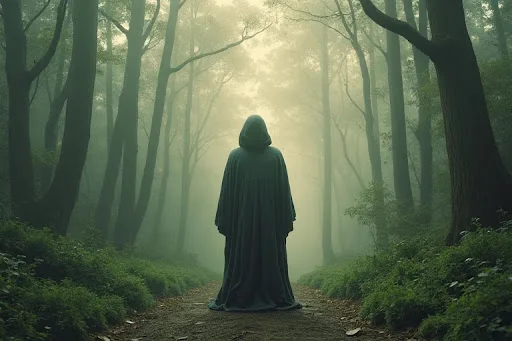Death is an inevitable part of life, yet it remains one of the most daunting topics for many. The widespread fear of death can be traced back to our instinct for survival, as well as cultural and societal influences that shape how we view mortality. However, the relationship we have with death can vary greatly from person to person, and it is worth exploring why some of us are scared while others find a sense of acceptance or even comfort in the concept of dying.
For many, fear of death stems from the unknown. What happens after we die? Is there an afterlife, or does everything come to a halt? This uncertainty can create a sense of anxiety and dread. People often fear not only their own death but also the loss of loved ones, highlighting a common concern for the emotional pain that accompanies bereavement. Losing someone close can trigger feelings of despair and loneliness, intensifying our fear of the end of our own existence.
Another factor contributing to the fear of death is the way society portrays it. Movies, literature, and news often depict death as something violent or tragic, filling our minds with images that evoke fear rather than understanding. Additionally, the act of dying itself evokes worry about suffering, loss of autonomy, and the physical decline that comes with aging or illness. These portrayals may reinforce negative associations with death, making it a taboo subject that many avoid discussing openly.
Conversely, some individuals develop a more accepting attitude towards death, seeing it as a natural progression of life. Many philosophical and spiritual traditions offer frameworks to help reframe our understanding of mortality. For instance, Buddhism teaches that life is fleeting and impermanent, urging people to embrace the present moment rather than obsess over what lies ahead. This perspective encourages a sense of peace regarding death, allowing individuals to focus on the meaningful aspects of their lives.
Additionally, having discussions surrounding death can lead to greater acceptance. Many people find comfort in sharing their thoughts and feelings about death with others. These conversations can provide opportunities to reflect on personal beliefs, resolve unresolved fears, and even celebrate the lives of those who have passed away. Engaging with death in an open, honest manner can demystify it and help reduce fear.
Moreover, the fear of death can motivate individuals to live life more fully. Recognizing that our time is limited can inspire us to pursue our dreams, connect with loved ones, and take risks. This awareness can cultivate a deeper appreciation for life and its fleeting beauty. People who embrace mortality often find themselves more engaged in the present and motivated to leave a positive impact on the world.
In conclusion, our relationship with death is complex and multifaceted. While fear may dominate for some, others approach it with acceptance and understanding. Engaging in open conversations about death, examining our beliefs, and reflecting on the profound nature of life can shift our perspectives. Ultimately, whether we are scared or not scared of death, it remains a universal experience that challenges us to live authentically and appreciate the time we have.
If you find this article useful, please comment, subscribe, like, and share with friends. If you're interested in joining our brotherhood, note that while the registration form is free, our professional spiritual materials for initiation require payment.
We offer an inspiring atmosphere with resources for the spirit, body, soul, and mind.
You can connect with us through the following channels:
Call USA: +13157504880
Call Nigeria: +2348067204187
Telegram Message:
https://t.me/+2348067204187
WhatsApp us: https://wa.me/2348067204187
Google chat: blackhearttemple@gmail.com
Email: blackhearttemple@gmail.com
Website Blog: https://blackheartbrotherhood.blogspot.com/
Join Our Telegram Group: https://t.me/blackheartbrotherhood
Join Our Telegram Channel: https://t.me/occultbrotherhood4money
We look forward to hearing from you!


Comments